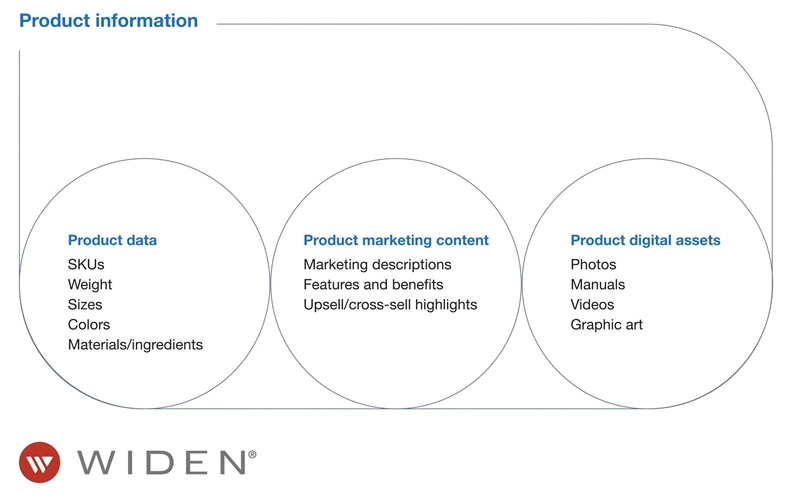Panic buying: it's the perfect example to illustrate just how fragile customer experience is. When the pandemic hit, shoppers around the globe united under the sole mission to stockpile as many canned goods, frozen burritos, and packs of toilet paper as humanly possible.
Brands (even the most seasoned ones) scrambled to remove out-of-stock items and keep product information up to date and accurate across their e-commerce sites. Some succeeded, but many grocery, big-box, and local stores were left picking up the pieces of a shattered customer experience.
That's just one story cited during the many conversations we had with marketers when conducting our research for the 2021 Widen Connectivity Report. What the story tells us is that trust is a crucial part of the customer experience.
In fact, 70% of consumers say that trust is' more important today than it's ever been. If brands fail to deliver reliable information—or fail to engage buyers in other positive, trust-evoking ways—they risk losing the attention, loyalty, and spend of their audiences.
In other words, they can break the bonds of connectivity.
What is connectivity?
Connectivity is the state of interdependence between people, objects, systems, and information, as well as the nature of those relationships.
Connectivity and customer experience are closely intertwined. To deliver a great customer experience (or even repair a broken one), brands must find meaningful ways to connect with their audiences and drive deeper, more trusting, and lasting relationships.
In our 2021 Widen Connectivity Report, we explore the role of product information in helping brands strengthen that audience connection and deliver superior customer experiences.
Digital marketers have to publish information about their merchandise; that we know. But how can they provide that information in ways that strengthen the bonds of connectivity and helps them succeed on the digital shelf?
Here is what our connectivity research tells us.
1. Product data is critical in building customer trust, but it cannot act alone
As you can see in the following graphic, there are three types of product information: product data, product marketing content, and product digital assets. Nearly 50% of the marketers we surveyed credit product data as the information type that has the largest impact on customer trust.

But we also learned that marketers can't rely only on product data. Trust is a critical piece in the connectivity puzzle, but in actually turning trust into sales, product digital assets or product marketing content have the biggest impact, 72% of respondents said.
Yes, any type of product information is better than nothing, but brands that use all three types have the advantage.
2. Total accuracy is table stakes for the digital shelf
Over 81% of the brands we surveyed "always" or "usually" use product information in their e-commerce marketing efforts, so marketers clearly see its value. However, they also know that the accuracy of the information they provide has serious implications.
According to our survey, accurate product information—even more so than customer reviews, visual design, and social media activity—has the biggest impact on customer trust in marketing efforts.
But for accuracy to prevail, brands must bring on the technologies, processes, and safeguards to gain better control over their information.
3. Objective information is the backbone of a strong marketing story
If you're not being authentic, it's hard to fake authenticity in our digital era the way one might have been able to years ago, when information was harder to come by, one connectivity interviewee pointed out. And isn't that the truth?
Marketing stories are an important way brands connect with their audiences. But for that connection to occur, brands must tell marketing stories that are rooted in facts.
Product information is largely objective. That is likely one reason that 57% of respondents use it to tell stories about their brands and 71% use it to tell stories about their products. Product information infuses credibility into a marketer's stories, but that's not all. Get the full Connectivity Report to find out what other marketer's had to say.
4. Personalization takes a back seat to lending a helpful hand
Buyers want to be empowered to be the experts in their purchasing journeys. So rather than forcing personalization on them in the form of retargeted ads or behavior-triggered offers, brands are meeting customers where they are in their buying journeys.
When buyers come looking—i.e., when they visit a brand's website or search for a product online—brands are focused on being ready with the helpful information customers need to make confident, informed buying decisions.
5. Technology is needed to translate information into engaging customer experiences
In today's omnichannel marketing environments, brands have to work harder than ever to present their product information in ways that are actually engaging.
When we asked survey participants how they achieve that, top responses revolved around having the right tools and technologies in place.
Some brands use advanced technologies such as virtual and augmented reality to engage their customers with immersive product experiences, but we found that most brands take a crawl-walk-run approach. Before sprinting head-first into more advanced or "sexy" product experiences, brands are focused on the tools that help them engage customers with rich, accurate, credible, and helpful information. And. in many cases, that's just what the customer needs.
Get our 2021 Widen Connectivity Report
Don't panic—we have more great connectivity insights, survey results, and brand stories for you. Learn from leading brands and get the inspiration you need to connect the dots between marketing, information, and customer experience. Get started today by downloading the full 2021 Widen Connectivity Report.




